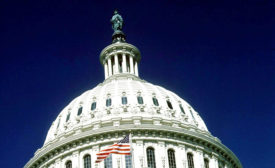Home » tobacco use
Articles Tagged with ''tobacco use''
E-cigarettes ‘potentially as harmful as tobacco cigarettes’
“I was shocked the first time I saw the result”
June 14, 2017
Never miss the latest news and trends driving the safety industry
eNewsletter | Website | eMagazine
JOIN TODAYCopyright ©2024. All Rights Reserved BNP Media.
Design, CMS, Hosting & Web Development :: ePublishing





